Book Review: "Did Jesus Exist? The Historical Argument for Jesus of Nazareth" by Bart Ehrman8/1/2018 This excellent book by an agnostic academic makes a convincing case for the historicity of Jesus Christ, a real, living, breathing, human being in history who changed the world forever. This is not a theological or philosophical book, but rather a scholarly attempt to show skeptics and mythicists that Jesus of Nazareth was a historic figure, not only a religious one. The author, Bart Ehrman, a professor at The University of North Carolina, takes on the ludicrous idea of the mythicists that Jesus never existed, and that he was merely a religious figure concocted by people who lived after him. Erhman draws upon the historical record, including the Gospels, pre-Gospel sources, Josephus, Tacitus, the letters of Saint Paul, and other sources to make his compelling case.
Any Christian or even non-Christian who is faced with the arguments of the mythicists can rely upon Ehrman's book for its research, cogent argumentation, and intellectual honesty. I would highly recommend this book to anyone interested in the historicity of Jesus, the New Testament, Christianity, or even Middle Eastern history more broadly. I look forward to reading Ehrman's other books about similar topics. I just finished this sweeping history of the rise and fall of Prussia, from 1600 until 1947. It chronicles the rise of Brandenburg and the ruling Hohenzollern dynasty, including the famous Frederick The Great. The author makes a convincing case that Prussia was an artificial political construct rather than a place with its own unique cultural tradition. While Brandenburg had such an identity, what became "Prussia" did not.
As the Hohenzollerns added to their territory they brought in disparate places that had little in common other than being generally Germanic. The Hohenzollerns ruled over East Prussia, West Prussia, Brandenburg, Pomerania, Silesia, and a few other smaller areas. Prussia included much of modern day Poland, which was divided up between the Russians and the Prussians for about a century. As Prussia began its wars of conquest and territorial acquisition, it became the unifying force within the German heartland, replacing Austria as the Germanic hegemon in Central Europe. By 1871 Prussia under Kaiser William I and Otto von Bismarck had unified Germany and declared the new German empire. The high water mark of Prussia and the German empire occurred not too long after that declaration, as Germany allied with Austria-Hungary and eventually the Ottoman Turks leading up to World War One. By the end of the war, the Kaiser had abdicated and political revolution swept through Germany, bringing on the tumultuous years of the Weimar Republic, and eventually the rise of the Nazis. The book is worth a read to anyone interested in Prussian and/or German history, and it rejects a few misconceptions along the way. At more than 680 pages it is an investment of time, but is well worth it for the student of German history who wants to fully understand how this one time nation-state came to be, and how it came to its ultimate demise. Jonah Goldberg's book, "The Suicide of the West" is a deep dive into what makes Western Civilization, and specifically the United States, uniquely good. He makes the argument that ideas matter, or as Richard Weaver put it, "Ideas Have Consequences." Jonah's writing weaves in and out of topics including politics, sociology, anthropology, philosophy, and economics. He compares the tribal and barbaric impulses of man to the vast improvements of civilization.
He critiques the cultural and political trends that are threatening our civilization, and offers some very recent and important examples in the conclusion of his book. He uses the appendix to prove that economically speaking, Americans in particular have seen incredible improvement due to capitalism and the rule of law. His charts, graphs, and other data points provide convincing evidence that as my old boss Dick Armey used to say, "Freedom works." The "Suicide of the West" is a great book, and should be read by all Americans, but particularly conservatives and Republicans. The book asks the reader to take a hard look at the values we are upholding versus the ones we should be upholding, in order to preserve the West, and avoid contributing to its self-destruction. This week I appeared on My Campaign Coach podcast with Raz Shafer to discuss how Dan Crenshaw was able to pull of an incredible upset victory in the Republican primary election for Texas's 2nd congressional district. CLICK HERE to listen to the podcast, which runs about 40 minutes.
I got the call one day in the fall of 2017. A thirty-three year old Navy SEAL wounded in Afghanistan by an IED wanted to discuss running for Congress to replace the retiring Ted Poe. The medically retired SEAL, Dan Crenshaw, had lost his right eye in the IED blast, spent days in a coma, recovered by the grace of God, and with typical SEAL grit and determination had found a way to get back in the fight. He told me he had re-deployed twice after losing his right eye and making his recovery. “Wow, I knew SEALs were tough, but seriously?” I asked myself.
Dan Crenshaw had immediately earned my respect and appreciation for his ten years of elite military service and the courage he displayed throughout his ordeal. But now we were talking about the next phase of his life, and how he could best continue to serve. He had been encouraged to run for Congress by our mutual friend, and he had the support of his wife and best friend, Tara. But he wanted to think things through and make the best decision possible. So we spent some time talking about what a run for Congress would look like, the sacrifices he would have to make, and the toll it would take on his family. I encouraged Dan to run, and reminded him that he had nothing to lose by doing so. I told him that he had a great story to tell, and he could win, if we could reach enough voters in time. But we’d have to run a nontraditional campaign in the few weeks that we had before the primary election in March. He made a few more calls, prayed about it, thought about the pros and cons, and then decided to jump in the crowded field of candidates for U.S. House District 2 in Texas. From the moment Dan decided to run, we knew that we had to act quickly. We also knew that we would not be able to compete on TV and radio with the millions of dollars that other candidates would have at their disposal. This was going to be a guerrilla campaign utilizing an integrated field and digital approach to target voters efficiently and effectively. Luckily for me, Navy SEALs know a thing or two about how to win using asymettrical tactics. We worked quickly to build the campaign website, facebook page, twitter handle, email templates, and other online platforms that we would need. We acquired CD 2 voter data from Voter Trove, a cutting edge data company based in Austin. We filed the paperwork, set up the bank account, and finalized Dan’s biography. One of the unique elements of this campaign was that Dan wrote most of his own stuff: his bio, his policy positions, and his public statements. He was a rare breed of candidate: someone who thought about and cared about the ideas as much as the strategy and tactics of campaigning. From the moment we launched the website and the facebook page, I could sense the potential for momentum. The first ad we posted on facebook captured the imagination of thousands of people. Here was a picture of a Navy SEAL all decked out in his gear, with his helmet and rifle. The photo was clearly taken either on the way to a mission, or on the way back from a mission. Either way, here was an image of an American warrior doing his duty, serving his country in a combat zone thousands of miles away from home. And the caption textualized the image: “My service to my country does not end on the battlefield.” Dan Crenshaw had served on the battlefields of Iraq and Afghanistan, and now he was asking to serve in Congress. The ad nearly “broke the internet.” We knew that we had a special candidate, that voters inherently trusted veterans, and wanted to send representatives to Washington who could be trusted to do their duty. Now we had to make sure that enough voters in the 2nd district were aware of Dan before they went to cast their votes in the primary on March 6th. We focused the next few weeks on increasing Dan’s brand awareness through social media, especially through email, facebook and twitter. He also began making fundraising calls so that he could pay for the essentials of any campaign. In the beginning, many donors and voters were noncommittal, but Dan worked on them one by one, and did start out with a loyal following of volunteers. He and his family attended local Republican and tea party club meetings, Chamber of Commerce meetings, and many other social and civic gatherings. We captured as many photos and as much video as we could to provide an inside look into the campaign, and into Dan’s heart and mind. And we pursued an aggressive earned media strategy that got him on local and national television, radio, and podcasts. Once each interview was over, we blasted it out to our supporters on social media and encouraged them to share the clip. This transparency and proactive earned media approach is not common in political campaigns, but we knew its power. We also knew that we would have to rely on committed volunteers to help us reach voters directly at their homes and on their phones. Everywhere Dan went he seemed to pick up another handful of volunteers that wanted to help. So we began to organize them by precinct and empowered them with the tools they needed to spread the word about Dan. We printed and distributed thousands of field signs, yard signs, door hangers, and palm cards throughout the district. We encouraged our supporters on social media, armed with Dan's message, to make the case for Dan to their friends and family. And we eschewed costly television ads that air to hundreds of thousands of people completely outside the district. Instead, we beefed up our online presence with ads promoting our campaign videos, graphics, and earned media clips. We systematically identified likely Republican primary voters based on their past voting history, and targeted them efficiently with door knocks, phone calls, digital marketing, and direct mail. As early voting approached in late February, I could already sense our momentum. But then the candidate himself came up with an idea that was crucial to our victory. Dan called me and said, “Brendan, I’m going to run the entire length of the district in five days.” I replied, “You mean you are going to run 100 miles.. in five days?” The Navy SEAL who had been through hell and back replied, “Yes, and we are going to raise money for Hurricane Harvey victims along the route.” And that’s how Dan Crenshaw Forrest Gumped the race for CD 2. The facebook live videos of his run were incredible. One video would feature Dan speaking directly to the camera about how Houston was still devastated by the flooding from Harvey. The next video featured Dan running off into the distance, a man with a mission. Then, after a few days, more people started to recognize him, and they honked their horns or stopped to talk with him. One day a group of veterans showed up driving military vehicles adorned with American flags, and escorted Dan to the next stop on his run. Then a man along the route came up and gave Dan an American flag to carry with him as he ran. The image was powerful: a Navy SEAL running for his country, for his district, for his community.. How could the voters send someone other than that man to Congress to represent them? As early voting continued, the momentum only increased. Local television crews and newspaper reporters came out to interview Dan on his run, and the images went viral on social media. There was something special happening in the 2nd congressional district, and I was seeing it in the data and in the feedback I was getting from staff, volunteers, donors, and the media. Our Get Out the Vote calls were showing about 10% support for Dan just before early voting started. But by the end of the early voting period the calls were showing 30% support for Dan. The trend lines were incredible, and I excitedly reported the findings to Dan and the team. We figured that we would under perform with the mail in ballots but we would over perform during early voting and Election Day, and we did just that. Election night was nerve wracking, and required a lot of frantic math, but it was also great fun. As the first results came pouring in, they showed Dan down in the mail in ballots. But as the early voting numbers came in, we could clearly see that we had plenty of room to make up the difference. Every time more numbers came in, I did the math to see if we could make it into the runoff election, and every time more results came in, we closed the gap. In the end, we jumped ahead of the third place finisher by 155 total votes out of more than 48,000 cast. We had shocked the political world in Texas, besting a self-funded candidate who poured $6 million into the race and spent most of it on television and radio. Dan Crenshaw, a non-politician and political neophyte, had beaten big money, big endorsements, and big odds. He sprinted into the runoff election on May 22nd with continued momentum, and despite an onslaught of a million dollars in negative, personal attacks against him, he won the day again. He ran away with the race, getting 70% of the vote to his opponent's 30%. And he did it with honor and class. He responded to the negative attacks but he never returned them in kind. He kept the moral high ground, ran a clean race, and proved that voters are hungry for heroes that they can trust. We didn’t run a single television ad in the runoff, spent very little on radio, and instead poured resources into direct voter contact, as we had in the first round of balloting. Dan remained an open and transparent candidate who would meet with anyone, talk to anyone, and even give out his cell phone number. He was not, and is not, your typical politician. He is someone that the voters can be proud of, and someone who appeals to our better angels. As a political strategist, it is refreshing to work with a candidate like Dan. I am glad that we ran a unconventional campaign that did not look and feel like politics as usual. It was necessary, in my view, but it is also a better way to run campaigns. Tell a story, connect directly with the voters, utilize the power of face to face contact and social media, and stay positive in the face of negative, nasty personal attacks. If more candidates and operatives subscribed to this type of campaigning, perhaps we would all be better off. We certainly showed that such a candidate and such a campaign can win the day. And we will show it again in November. In one of our campaign videos Dan shares a memory about his late mother. He recalls, “The first hero I ever knew was my mother. I watched her fight cancer for five years. She never quit, she never complained, and she never stopped taking care of us. She told me something before she died. She said, You will soar to great heights.” I have no doubt that Dan will keep soaring to even greater and greater heights. And our country will be better off because of it. Brendan Steinhauser is Dan Crenshaw’s political strategist and a partner with Steinhauser Strategies, a public relations and political consulting firm based in Austin. He can be reached at [email protected] Last night I joined Karina Kling and Harold Cook on Capital Tonight to discuss the latest news in the 2018 elections. We talked about new polling out in the Texas gubernatorial race, as well as the U.S. Senate race between Ted Cruz and Beto O'Rourke. I appeared on Capital Tonight on Spectrum News, which airs in Austin and San Antonio. I joined host Karina Kling and the outgoing chairman of the Travis County Democratic Party, Vincent Harding. We discussed the latest news developments, as well as Texas politics.
I joined a political panel on CBS Austin to discuss the recent primary elections in Texas. We talked about the various races and candidates that are making news in Texas this year.
Here is my interview this morning on KTRH radio in Houston about trends in higher education. I was asked about the rising costs and declining value of a four year degree, given that college campuses have become a hotbed of far left ideas.
I spoke with CBS Austin about the early voting numbers in the 2018 Texas primary, and what those numbers mean for the fall general election.
This morning I appeared on KUT News Austin, the local NPR affiliate, about the battle for control of Congress in the 2018 elections. You can listen to my interview by clicking the play button above.
This excellent book covers Austrian history, self identity, and political culture over the centuries. It focuses mainly on the 19th and early 20th centuries, when the Austrian empire was beginning its decline. The author does a good job explaining the tensions between the various nationalities within the empire (Germans, Czechs, Magyars, Slovenes, etc.) but he also helps the reader understand the tension between Austria and the German empire / Germany. He explores the Austrians' "Germanness" and their relationships with Prussia, Bavaria, and other German states and principalities throughout Austrian history. After reading this book, the reader will better understand the Austrian psyche, the country's glorious past, and its modern psychological insecurities. (As someone who has visited Vienna, I have seen these first hand). I would recommend this book to anyone with an interest in Austrian history, German history, or Central European history more broadly, as they are all intertwined, and almost inseparable.
Here is my recent interview with NPR about congressional redistricting, and the court cases that are being considered around the country. The Supreme Court is expected to weigh in on the topic soon, so that will be interesting. The main question concerns the constitutionality of partisan gerrymandering.
This is an excellent biography of Ulysses Grant: the man, the general, the president, and the international celebrity. The author, University of Texas professor H.W. Brands, does a great job telling Grant's story with a compelling narrative that holds the reader's attention throughout the book. Upon reading this book one has a much better understanding of the characteristics that made Grant a cool, calm, strategic thinker who led his men to victory during the Civil War.
I found his interactions with other Union leaders particularly interesting -- especially President Lincoln and General Sherman. This trinity of Northern leadership and warmaking was integral to the Union's victory in the war. They had the resolve to continue to fight, even at a terrible cost in blood and treasure. In fact, General Grant earned the respect of his Confederate enemies, not only for his victories, but for his character and actions as a victor. His grace and humility at Appomattox made it easier for General Robert E. Lee to surrender with dignity, and ride off with his men with their pride intact. Actions such as these helped to finally end the war and to start the healing process in America. My former professor at The Institute of World Politics, Dr. John Lenczowski, has written an excellent article about how the United States can pursue regime change in North Korea without using nuclear weapons, or launching a preventive war. The article is worth a read, and Members of Congress should consider the ideas that Dr. Lenczowski explores for waging a strategic campaign to topple the communist regime in Pyongyang. "These are the methods of public diplomacy, political action, ideological and cultural warfare. These are key ways of defeating an enemy without using force. They are remarkably inexpensive. They are methods recommended by North Korean defectors themselves. And they can be used against other powers that are conducting cold war actions against us." This is one of the best books I've read about ancient Greece. The author, Thomas Martin, covers everything from the people inhabiting Greece centuries before the classical age to the rise and fall of Alexander the Great and the Hellenistic age. The book is fascinating, well written, and concise. It provides a good overview of Greek history, with an introduction to some of the most important events, thinkers, and battles in the vast time period covered.
Anyone interested in diving deeper into the topic should of course read the ancient historians, playwrights, philosophers, and writers who provided the best primary sources we have to illuminate the culture of the ancient Greeks. But the author does a great job placing these thinkers into their proper context, and weaves a narrative that is hard to put down. Nebraska senator Ben Sasse has a bright future, or so I hope. His book on "The Vanishing American Adult" is spectacular. It's not the typical politician's book about "me, me, and me." It's a social diagnoses about what ails us, and how to begin healing our society. Sasse leans on his historical knowledge and training to examine what made America great in the first place, and where we may be going wrong. He writes about the epidemic of extended adolescence, where millions of young men would rather play video games for hours a day rather than get a job and become productive citizens. He encourages all Americans to work hard, be productive, read prodigiously, travel discerningly, and reduce the amount of screen time in their lives.
Sasse's politics are conservative, but this book is not a polemic against the left, or a partisan attack against Democrats. Rather, it is a thoughtful call to action for parents who want to raise good kids, for citizens who want to foster republican virtue, and patriotic Americans who want to preserve those attributes that have always made America great. Here is my quote in McClatchy news about the failed effort to repeal ObamaCare in Congress:
I appeared on local NPR affiliate KUT Austin to talk about voter data and how political campaigns use it. Below is an excerpt from the story KUT posted on its website. Brendan Steinhauser, a political strategist living in Austin, uses the state’s voter file all the time.
“The voter file is quite simply a list of voters who are registered to vote,” he explains. “You can you also obtain their voting history to see if they have voted in past elections.” He runs political campaigns for candidates and non-profits across the country at Steinhauser Strategies. Steinhauser says he uses the file to figure out who to target when he’s trying to get votes for a candidate. For example, Steinhauser pulls up a list on his laptop he created for a statewide race. It’s a list of roughly 20,000 Asian-American Republicans. “And it shows you the name, it shows you their address, their zip code, their phone number,” he says. Steinhauser says this file mostly contains basic information, but everyone who uses this data agree to some rules. “You can’t use the voter file for commercial purposes,” Steinhauser explains. “You can’t just spam people or try to use it for nefarious purposes. You do have to make sure you use it for political purposes – what it’s meant to be used for.” ----- Steinhauser argues people are actually handing over way more information to companies online. For example, he says information political strategists can get from Facebook is way more useful to campaigns. He says emails, which aren’t in the voter file, are also better for reaching out to voters who tend to move or stop using their landline after a while. I just finished this excellent book about the Lewis and Clark Expedition. It is fascinating, well-written, and based on a close reading of the journals from the expedition, as well as the other important books in the Lewis and Clark cannon. The author, Stephen Ambrose, makes the reader feel like he is part of the journey, with detailed accounts of the difficulties the expedition faced along the way. I would highly recommend this book to anyone who wants to learn more about Lewis and Clark, the exploration of the Northwest, or life beyond the frontier in 1804-1806.
The reader is treated to tales of interactions with both friendly and hostile Indians, the Blackfeet, Nez Perce, Chinook, and Sioux. He also reads about the extremely harsh winters, and how the men had to survive by eating spoiled elk, horse, or even dog meat. The author chronicles the tough decisions that had to be made by captains Lewis and Clark, the political ramifications of failure, the glories of their success, and the tragic end to young captain Lewis's life. "Undaunted Courage" is a great history book, as well as an adventure story. Upon reading the book it becomes clear just how wild and unique this region of the United States was before settlement by Americans in the 19th century. I just finished this excellent book about what life is like in North Korea for a political prisoner. This was one of the best books I've read in years. The terrorist dictatorship of North Korea has imprisoned its population in a land that lacks adequate food, electricity, clothes, and other life essentials. And those in the concentration camps of North Korea fare even worse. They face daily humiliation, torture, mind control, beatings, rape, and cruelty unmatched by anything else on earth outside of the Islamic State controlled areas.
With North Korea in the news once again, I recommend that all Americans read this book and learn more about this inhumane regime led by psychopaths with nuclear weapons. The dictators of North Korea are right up there with Stalin, Mao, Pol Pot, and Hitler when it comes to how they murder their own people and would murder millions more if they get the opportunity. Humanity cannot allow that to happen, and the first step is to educate ourselves about the internal and external threats posed by this homicidal communist regime propped up by the Chinese and Russians.
I appeared on Meet the Press Daily with Katy Tur on MSBNC. I talked about how the tea party's strategy and tactics have been studied and employed recently by left-wing activists. Below is the clip.
This is a fantastic epic history of the holy city of Jerusalem. The book covers the entire fascinating, bloody, chaotic, and consequential history of this enigmatic city. Jerusalem has always been at the crossroads of three continents, and at the crossroads of history itself. In this biography of the deity's city, you learn about the Hebrews, the Babylonians, Assyrians, Romans, Persians, Greeks, Arabs, Crusaders, Turks, British, and Israelis. And many other people who have made their imprint on this beautiful, holy, yet tragic city. And you learn about the history of the Jews, Christians, and Muslims who have ruled, and been ruled, in this city. I highly recommend the book, "Jerusalem: The Biography" and give it five stars.
"Too Dumb to Fail" by Matt Lewis is an excellent book about the history of the conservative movement and the future of the Republican Party. Lewis makes the case for conservative principles based on an ancient tradition of intellectualism that runs through the modern day.
He writes about the future of the Republican Party and urges candidates, elected officials, consultants, writers, and activists to base their work in conservative ideas and public policy solutions that are not only right, but will lead to long term victories. This book is an important one for anyone that cares about the future of the conservative movement. |
Brendan's BlogBrendan Steinhauser is a national political strategist focused on campaigns, media, and public policy. Archives
November 2022
Categories |
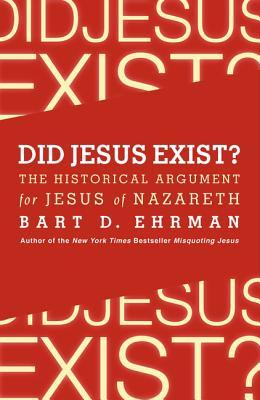
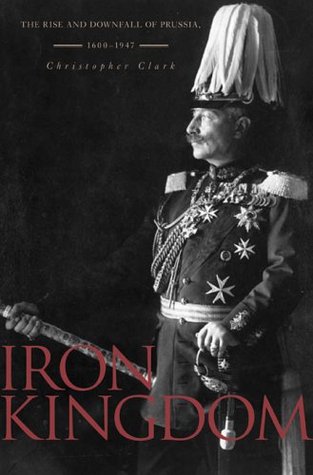
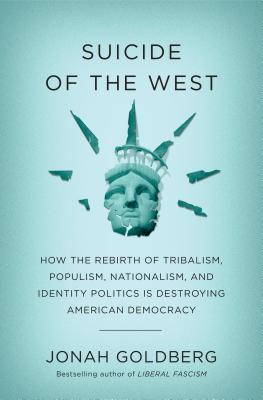
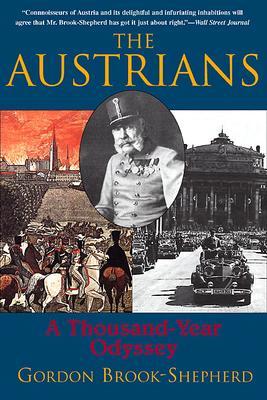
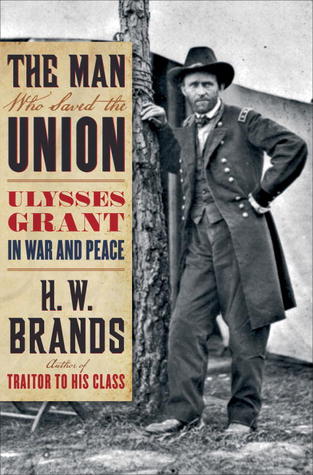
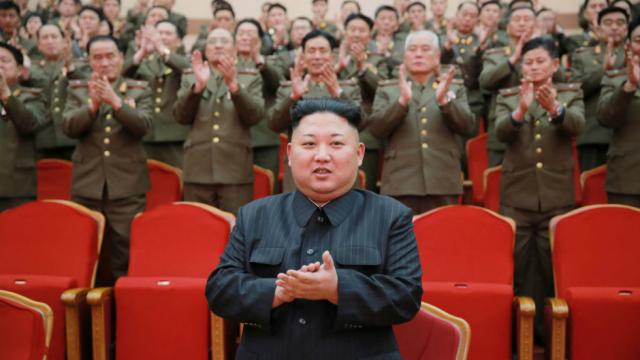
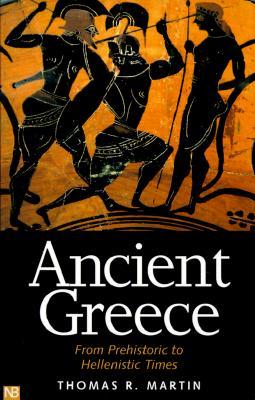
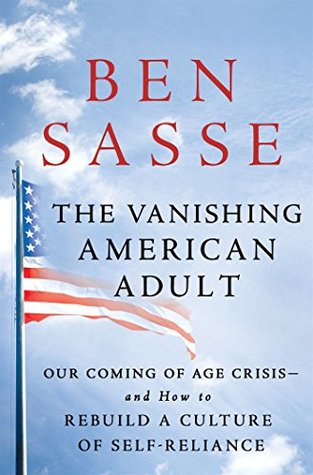

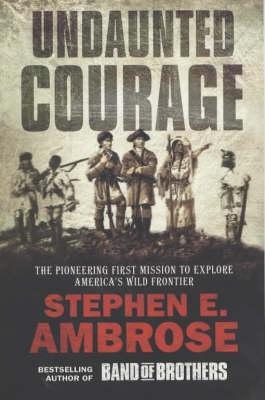
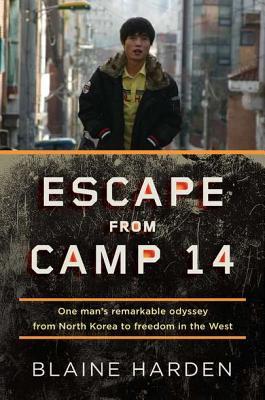

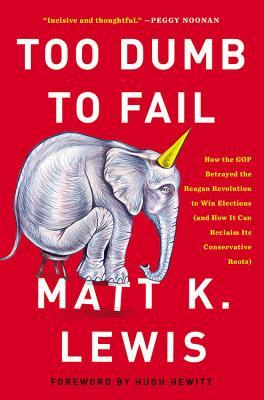
 RSS Feed
RSS Feed